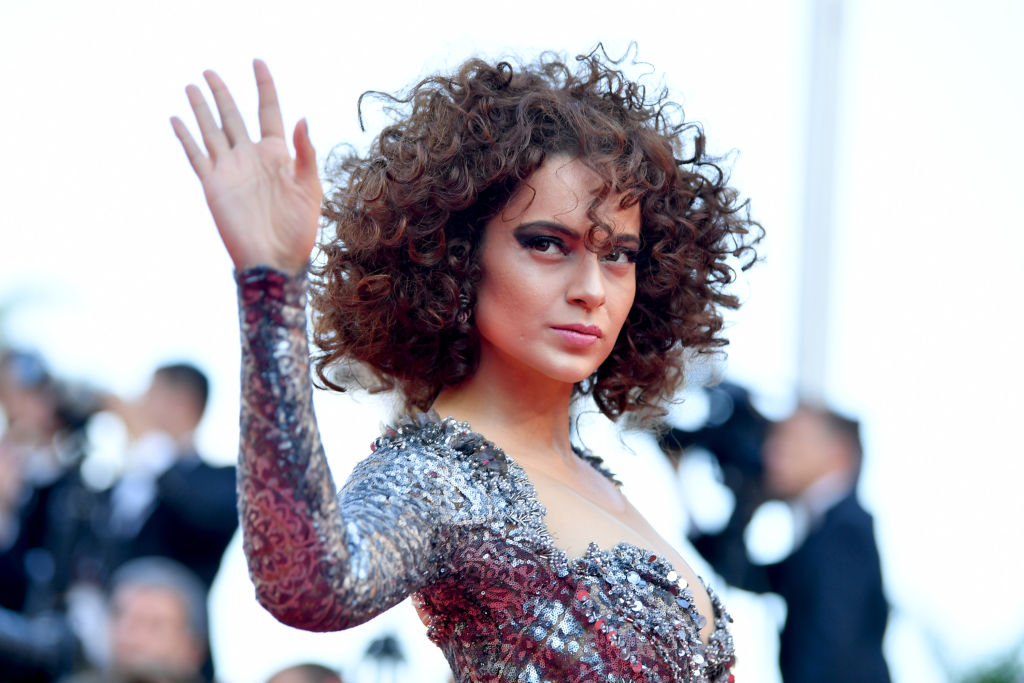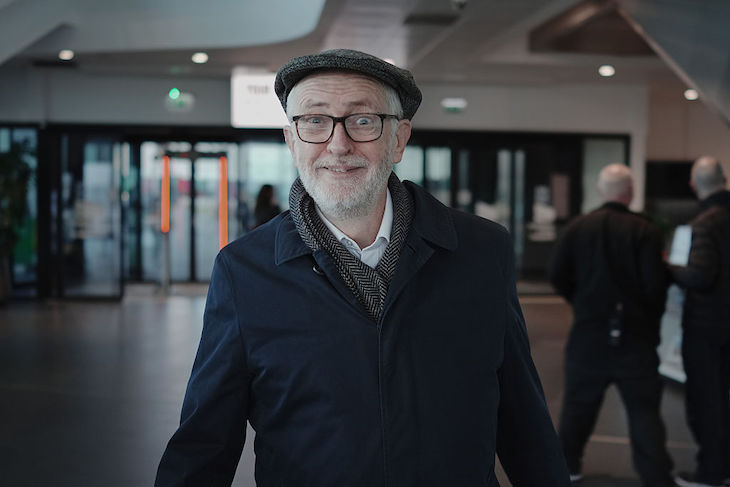On Sunday night a screening of the controversial Bollywood film Emergency was disrupted in Vue cinema in Harrow, West London, when a group of 30 masked men barged in and started shouting ‘down with India’. Most viewers left the screening, with one eyewitness describing the behaviour as a ‘frightening and intimidating experience’. Censorship of Emergency has extended to other parts of the country too, with screenings cancelled in places like Wolverhampton and Birmingham.
A video of the unruly behaviour Harrow shows the group shouting ‘Khalistan zindabad’, or ‘long live Khalistan’ (Khalistan is the would-be name for a conceptual Sikh homeland). A woman confronting the group responds with ‘Bharat Mata Ki Jai’ – which translates to ‘victory to Mother India’. This brief but illuminating exchange indicates the protestors are supporters of the pro-Khalistan movement, and the woman a pro-India patriot. But what is it about Emergency that has created tension and resulted in censorship?
For a start, the film has been directed (and starred in) by the right-leaning Bollywood actress-turned-politician Kangana Ranaut, of the Bharatiya Janata Party (BJP). She doesn’t exactly have the best of records when it comes to public statements about Indian minorities. In 2021, her Twitter account was suspended for violating rules around hateful conduct and abusive behaviour with comments made about the West Bengal elections, when she urged Prime Minister Modi to resort to ‘gangster’ tactics to ‘tame’ the chief minister Mamata Banerjee, whose party had just defeated the BJP at the polls. The post included a veiled reference to the Gujrat massacre of 2002, when Modi was chief minister of the state. In 2020, a police complaint was also filed against Ranaut, for a video in which she referred to Muslims as ‘terrorists’.
More recently, Ranaut has got in trouble for her statements about Sikhs. In 2021, she made derogatory comments about protesting Sikh farmers on Instagram, resulting in a police complaint. She wrote on Twitter that Sikhs should ‘disassociate themselves from Khalistanis and come out in the support of Akhand Bharat’. Akhand Bharat, or ‘undivided India’, is a dreamt-up superstate promoted by right-wing Hindu nationalist groups like the BJP-linked Rashtriya Swayamsevak Sangh (RSS), and includes Afghanistan, Pakistan, Nepal, Bangladesh and Myanmar.
Emergency chronicles India’s dark history. Between 1975-77, the Indira Gandhi government imposed emergency rule for 21 months, following a Supreme Court order to stay a High Court decision, which declared Gandhi’s election to the Lok Sabha null and void. Civil liberties were suspended, thousands imprisoned (including the arrest of leading opposition politicians), the media censored, and 6.2 million Indian men from poor backgrounds were forcefully sterilised in just one year. The current Indian government has declared 25 June as ‘Constitution Murder Day’.
The Sikh protest at Emergency screenings, including in Harrow, is related to the unfavourable depiction of Sikh characters in the film, which is why Emergency was not released in Punjab – India’s only Sikh-majority state. The Sikh Press Association wrote: ‘The film is viewed as anti-Sikh Indian state propaganda for its depiction of ex-PM Indira Gandhi’s role in the Sikh genocide. She was the PM who initiated the Sikh genocide before her assassination by her Sikh bodyguards.’
I find Ranuat’s politics provocative and repugnant, but it’s wrong to censor her film, or any film for that matter. In fact, the worldwide release of Emergency coincides with the ongoing postponement of another Indian film, Punjab 95 – starring international superstar Diljit Dosanjh. So far, India’s Central Board of Film Certification has requested 120 cuts and forced the producers to change the film’s original name, ‘Ghalughara’ (which translates to ‘massacre’). It has been axed from film festivals too. Punjab 95 is about human rights activist Jaswant Singh Khalra, who exposed human rights violations and the mass cremations of thousands of Sikhs by Punjab police, in the period of insurgency following the 1984 Sikh massacres.
Those protesting with the aim to shut down screenings of Emergency across the UK are probably (like me) extremely frustrated with the seemingly endless censorship hurdles facing Punjab 95. It’s hypocritical to want Khalra’s story told, but to disrupt screenings that come from an opposing perspective. Cinemagoers should be free to watch both films and make up their own minds.







Comments